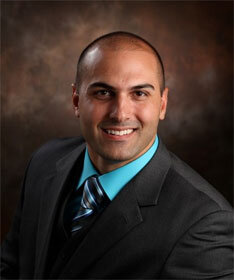Best Same Sex & LGBT Lawyers in Arkansas
Share your needs with us, get contacted by law firms.
Free. Takes 2 min.
Free Guide to Hiring a Family Lawyer
Or refine your search by selecting a city:
List of the best lawyers in Arkansas, United States
About Same Sex & LGBT Law in Arkansas, United States
Same Sex and LGBT law in Arkansas refers to the legal rights, protections, and challenges faced by lesbian, gay, bisexual, and transgender individuals under state and federal law. While significant progress has been made nationwide, Arkansas has a unique legal landscape concerning LGBT rights. Same sex marriage is legal due to federal law, but the state maintains several laws and regulations that impact LGBT individuals. Understanding your rights and responsibilities within this framework is crucial, as both protections and potential legal risks exist in areas such as family law, employment, housing, and public services.
Why You May Need a Lawyer
LGBT individuals and same sex couples in Arkansas may encounter legal challenges that require experienced legal assistance. Common situations where legal counsel is vital include:
- Facing discrimination in employment, housing, or public accommodations
- Navigating family law matters such as marriage, divorce, child custody, or adoption
- Seeking legal recognition of parental rights in same sex relationships
- Drafting wills, powers of attorney, and estate planning documents to protect loved ones
- Addressing name or gender marker changes on legal documents for transgender individuals
- Responding to harassment, hate crimes, or unequal treatment
- Understanding local and federal protections as they apply to your situation
- Pursuing remedies for denied healthcare, benefits, or services based on sexual orientation or gender identity
Local Laws Overview
In Arkansas, same sex marriage is legal following the United States Supreme Court decision in 2015. However, the state does not have comprehensive statewide protections for LGBT individuals in employment, housing, or public accommodations. In fact, Arkansas law prevents cities and counties from passing anti discrimination ordinances that offer protections not already found in state law. Adoption by unmarried couples or same sex partners is allowed, but legal procedures can be complex. Name and gender marker changes for transgender individuals are possible, but may require court processes and supporting documentation. It is important to be aware that religious exemption laws in Arkansas may allow some businesses or individuals to deny certain services to LGBT people on religious grounds. Federal law, such as Title VII and the Fair Housing Act, provides some protections, but local application and enforcement can vary.
Frequently Asked Questions
Is same sex marriage recognized in Arkansas?
Yes, same sex marriage has been legal and recognized in Arkansas since 2015 due to the United States Supreme Court ruling, and couples have the same legal rights as heterosexual couples when it comes to marriage and divorce.
Are there statewide laws in Arkansas that protect LGBT people from discrimination?
No, Arkansas does not have statewide laws explicitly protecting against discrimination based on sexual orientation or gender identity in private employment, housing, or public accommodations.
Can cities or counties in Arkansas create their own LGBT anti discrimination laws?
No, state law preempts any local ordinances expanding anti discrimination protections beyond what is provided at the state level.
What are my rights if I experience discrimination at work?
Federal law, specifically Title VII of the Civil Rights Act, prohibits employment discrimination based on sexual orientation and gender identity. You may file complaints with the Equal Employment Opportunity Commission if you believe you have been discriminated against.
Can same sex couples adopt children in Arkansas?
Yes, same sex couples can adopt children in Arkansas. However, the legal process may involve extra steps, and working with a lawyer is advised to ensure all parental rights are established.
How do I change my name and gender marker on identification documents in Arkansas?
Transgender individuals can petition the court for a legal name change and request gender marker changes on identity documents with appropriate court orders and supporting letters from healthcare professionals.
Are there any hate crime protections for LGBT individuals in Arkansas?
Arkansas does not have a hate crime law that covers crimes motivated by sexual orientation or gender identity. However, federal law may apply in certain circumstances.
What can I do if denied service based on sexual orientation or gender identity?
While federal protections may apply in some cases, Arkansas law allows some religious exemptions. Legal options can be complex, and consulting an attorney is highly recommended.
What should I consider for estate planning as an LGBT individual or couple?
Careful estate planning is essential to ensure your partner and family are protected. This includes wills, healthcare directives, and powers of attorney, especially if you are not married.
Are healthcare rights and access protected for LGBT individuals in Arkansas?
Federal law prohibits some forms of discrimination in healthcare, but state law does not specifically address LGBT healthcare rights. If you face discrimination, you can seek advice from legal aid organizations or specialized attorneys.
Additional Resources
If you need more information or legal assistance related to LGBT rights in Arkansas, the following resources can be helpful:
- American Civil Liberties Union of Arkansas - Offers legal advocacy for civil rights, including LGBT matters
- Lambda Legal - Provides legal support on LGBT and HIV related legal issues
- Arkansas Bar Association - Can help you find attorneys experienced in LGBT law
- Equality Arkansas - Advocacy organization for LGBT rights in Arkansas
- Transgender Law Center - Information and support for transgender legal issues
- U.S. Equal Employment Opportunity Commission (EEOC) - For federal discrimination complaints
- Human Rights Campaign - National organization with information on Arkansas laws and resources
Next Steps
If you believe your rights as an LGBT individual have been violated, or you plan to take steps such as marriage, adoption, or legal transition, it is important to consult with a qualified attorney who understands both Arkansas and federal law. Start by gathering any relevant documents and information about your situation. Contact a local legal organization, bar association, or advocacy group for referrals to experienced lawyers. Many organizations offer consultations or legal clinics to help you understand your rights. Taking these steps can help protect your interests and ensure your legal needs are fully addressed in Arkansas.
Lawzana helps you find the best lawyers and law firms in Arkansas through a curated and pre-screened list of qualified legal professionals. Our platform offers rankings and detailed profiles of attorneys and law firms, allowing you to compare based on practice areas, including Same Sex & LGBT, experience, and client feedback.
Each profile includes a description of the firm's areas of practice, client reviews, team members and partners, year of establishment, spoken languages, office locations, contact information, social media presence, and any published articles or resources. Most firms on our platform speak English and are experienced in both local and international legal matters.
Get a quote from top-rated law firms in Arkansas, United States — quickly, securely, and without unnecessary hassle.
Disclaimer:
The information provided on this page is for general informational purposes only and does not constitute legal advice. While we strive to ensure the accuracy and relevance of the content, legal information may change over time, and interpretations of the law can vary. You should always consult with a qualified legal professional for advice specific to your situation.
We disclaim all liability for actions taken or not taken based on the content of this page. If you believe any information is incorrect or outdated, please contact us, and we will review and update it where appropriate.
Browse same sex & lgbt law firms by city in Arkansas
Refine your search by selecting a city.















